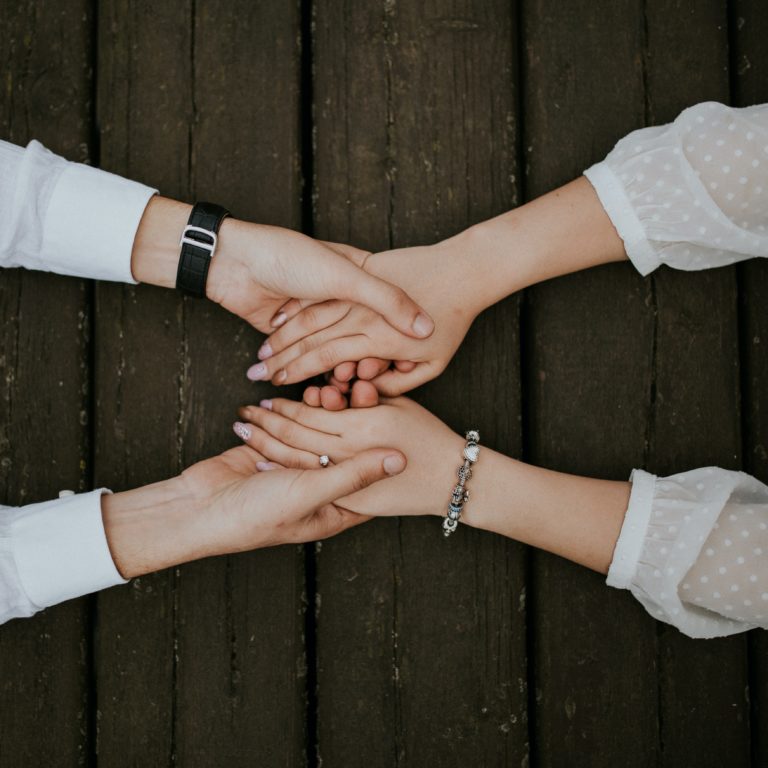8 Things to Say and 11 Things to Avoid Telling Survivors When Showing Support
Showing support to someone experiencing domestic is one of the most important things we can do as individuals. But, it can also be one of the most frustrating and complicated things we do. From the outside looking in, it can be obvious that a relationship has become unhealthy or abusive. However, that isn’t always the case when you’re in an unhealthy relationship. And, even if a survivor sees that it’s become abusive, it’s not usually as simple as “just leaving.”
We want to help family members, friends, and coworkers understand and learn how to be supportive in a healthy way. We will also show how some common language is not helpful for survivors.
We get it. Showing support can feel challenging, especially when we don’t know what to do or say. When we initially hear about abuse, especially when the abuse is happening to the people we love and care about, there may be times when we don’t know what to say or do, and that’s okay. Just showing that you’re listening can go a long way and show that you care.
Remember, it’s okay if you don’t know what to say when someone discloses to you. You can show support at any point and always call us for help and support.
8 Ways to Show Support Toward Survivors of Domestic Violence
- I believe you.
- None of this is your fault.
- Nothing you did or can do makes you deserve this.
- You’re not alone.
- I will support you however you need me to.
- Would you like me to look into resources?
- Do you want to go to the crisis center? I can also call them and see what it would be like.
- I am here for you.
11 Things to Avoid Saying to Survivors of Domestic Violence
- I don’t believe you.
- Why did they do that? Why didn’t you just say no or stop?
- Why did you let this happen?
- How could you let this happen?
- It’s best to just forget it and move on.
- I know how you feel.
- I feel sorry for you.
- That person is scum/trash for doing that to you.
- Maybe you misunderstood what happened.
- Why not just end the relationship?
- It’s been clear that you’ve been in an unhealthy relationship. Seems like it’s time to end it.
While some of these are problematic for obvious reasons, some of these statements we may realize we’ve used thinking we’re being helpful. The problem with calling someone who abuses scum or trash is that it can send a mixed message to the survivor. What does it say about them that they were dating or married “trash.” You also never want to say “I understand” or “I know what you’re going through” if you haven’t experienced it. You also don’t want to turn someone’s disclosure into talking about yourself or your experience. They may not open up again. As tempting as it can be to say, “Just leave” or “Why don’t you just end the relationship?” try not to. Often a person knows or can sense when a relationship is unhealthy or abusive. They may or may not be ready to leave. There may be many unseen barriers preventing the person from leaving, and there are complicated emotions. Often there is still love in the relationship, and times are not always bad, so it can be an extremely confusing and difficult decision for a survivor to leave.
If you think you may have said the wrong this, give us a call, and we can help provide ideas for how to reengage with the survivor. It’s also okay not to always get things right. You can apologize and keep engaging with the survivor.
Sometimes just sending an occasional “How are you doing?” or “Want to go for a walk/coffee run/Target trip?” can be enough to let that survivor know you care and are there for them. They may not want to talk about it, but when they are ready, they’ll know you’re part of their support network.
Here’s a great resource from the national NO MORE campaign on how to be supportive: Supporting Survivors.
You don’t have to be an expert. Just be there for them.
Advocates are always available to talk and brainstorm. Call us 24 hours a day at 1 (888) 511-6287 or (603) 352-3782.


